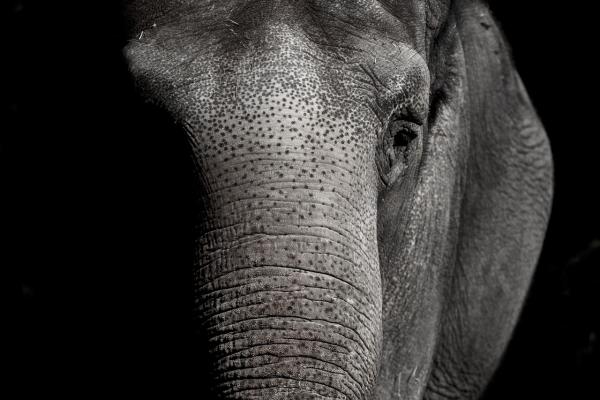An Evolutionary Idea
Every time our cells replicate, there is a chance for mutation and for that mutation to trigger events, along with other factors, in cancer development. From the view of evolutionary forces, the protection of our germline cells is the most critically important in passing on our genes to the next generation. Our germline, especially spermatogenesis, with its fast turnover, is particularly susceptible. From evolution’s point of view, cancers that develop before reproduction exert more harmful effects on future generations than those that develop after our reproductive years.
Mammalian spermatogenesis is temperature sensitive. In mice, and men, spermatogenesis needs to occur 2-4°C below body temperature, one degree higher, and viability is impaired, two degrees higher, and excess mutations result in most sperm dying. We believe this is why, in most mammals, the testicles are located outside the body; in humans, they descend into our scrotum.
Two large animals, whales and elephants, carry their testis within, subject to body heat; as Peto’s paradox identifies, they also have a much lower incidence of cancer than their body size would predict.
“Cancer is responsible for approximately 46 percent of mouse deaths, 25 percent of human deaths, and 27 percent of beluga whale deaths.”
For elephants, that figure drops to 5%. In connecting these two dots, we look not to the stars but to our genes.
“Guardian of the Genome”
Without the “benefits” of scrotal cooling, elephants have testicular temperatures consistent with core body temperature. They live in hot climates that heat their bodies, and their muscle mass generates heat as they move. Fun fact, elephant ears are the most important heat exchange, with the large number of arteries and veins releasing heat into the atmosphere. Evaporative losses are human’s most significant heat exchangers, and as we may all know, panting reduces body heat for dogs. But I digress.
Overall, elephant testis may well experience higher temperatures than may be safe. What makes up for elephants' loss of “scrotal cooling?”
Elephants have twenty copies of the TP53 gene, which creates a protein, p53, which is “an active key participant in cell divisions in both soma and germline.” P53 identifies and neutralizes damaged DNA and therefore slows, but does not entirely stop, cell mutation. Humans, alas, have just one copy.
Could the multiplicity of TP53 genes confer some evolutionary advantage because of the location of elephants’ testicles? An intriguing idea but a bit of a chicken-egg problem when trying to see whether one or another of these changes occurred first. Or perhaps, the increased number of TP53 genes, protective of spermatogenesis, has the unintentional but welcomed advantage of protecting the elephants from somatic mutations and cancers.
But what about the whale?
Whales also keep their testicles “uptight, out of sight,” although this may be due to their much colder sea world and the need to keep the little swimmers warm. They have a scrotal-like warming system, where an extensive network of arteries and veins, the rete mirabile, exchange heat. They also have only one copy of the p53 gene. [1]
As it turns out, cetaceans, while not having duplicates of TP53, do have duplicates of other genes involved in the control of mutations. Studies in one group of whales have also identified “two proteins, CIRBP and RPA2, that are present at high levels in bowhead fibroblasts and increase the efficiency and fidelity of DNA repair in human cells.”
Nature is fascinating; we have evolved not only in response to predators but our environment. Those evolutionarily fostered changes in our genes can have so many useful unintended consequences, the harmful ones having been eliminated.
[1] That we only have one copy of TP53 may not be all bad. The forced overexpression of the TP53 gene in mice was protective against cancer but accelerated aging.
Source: Uncoupling elephant TP53 and cancer Trends in Ecology and Evolution DOI: 10.1016/j.tree.2023.05.011




